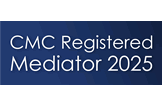
All About People
Need help to resolve your business, personal or employee conflicts & disputes?
Stay up to date with our latest news and workshops.

This month, we’re sharing two articles offering strategies for managers and employees to prevent and resolve workplace conflicts, following our mantra of ‘nipping issues in the bud’—practical life skills that benefit us all. Here, Geoffrey Milton provides actionable insights to empower individuals to address conflict effectively.
Despite employers believing employees feel confident to raise issues, research shows otherwise. According to a 2024 Chartered Institute for Personnel and Development (CIPD) report, How Employers Are Tackling Bullying and Harassment at Work, nearly half (47%) of employees experiencing conflict choose to let it slide. Only 29% discuss concerns with a manager or HR.
Unresolved conflicts harm both individuals and organisations. Employees report lower job satisfaction and greater mental and physical health challenges, as highlighted by the CIPD Good Work Index. Unaddressed issues, such as bullying and harassment, lead to stress, absenteeism, low morale, and staff turnover. Alarmingly, 9% of employees have sought new jobs due to such experiences.
Employees often lack confidence in their organisation’s ability to handle concerns. They may fear retaliation, believe nothing will change, or be unaware of reporting options. This often reflects broader cultural issues.
Key challenges include:
To encourage employees to raise concerns, organisations must offer accessible reporting options. Providing informal discussions with managers, alongside confidential channels, ensures employees feel supported - of course there does need to be formal mechanisms for reporting when matters cannot be resolved informally.
Steps to take:
Addressing conflicts early prevents escalation. While formal processes are sometimes necessary, they can be stressful, time-consuming, and costly. Informal resolution methods often yield better outcomes.
Proactive conflict management can:
• Resolve issues quickly.
• Prevent minor disputes escalating.
• Maintain positive working relationships.
Here at All About People, we specialise in conflict coaching and helping individuals learn early conflict resolution techniques, in turn helping organisations address problems constructively and maintain a healthy work environment.
Both senior leaders and line managers play a vital role in preventing and managing workplace conflict.
At All About People, we offer leadership training to help managers and senior leaders confidently address workplace challenges, promoting a culture of accountability and respect.
Fostering a workplace where employees and managers address conflicts early—taking a ‘nip it in the bud’ approach—is a valuable investment of time for everyone involved. A genuine commitment to creating and maintaining a harmonious and healthy work environment doesn’t mean eliminating differences of opinion or ways of working. In fact, differences and conflicts, when managed constructively, can be a force for good—a topic for another edition. Managers, employees, and HR must collaborate to achieve this shared goal, ensuring accountability and mutual respect thrive in the workplace.
For more information on how All About People can support you with mediation and conflict resolution, please get in touch.

Strategic Advice and Guidance for you and your organisation. Our accreditations:




Stay up to date with our latest news and workshops.